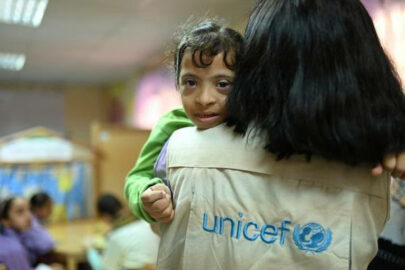When we come across a kid who is slightly different from us, who is perhaps in a wheelchair, most of us feel sorry for them. We express our sorrow and regret and we behave with them differently. Does that kid really need that? Spending an hour or two with them will be an eye-opener. They are actually better than us in many ways.
Here’s an incident- This was some 15 years back. Our school had many differently-abled kids, most of them were taught in normal classrooms and were not treated differently. One of them went in the same school bus as I did. She used to sit just behind me. Once, on the day of an exam, I forgot my book on the bus-seat in the morning. That afternoon, when I met her again, she didn’t say a word, took out my book from her bag, and returned it to me. She had seen me with the book, and when I was irresponsible about it, she took notice. This hit me hard. Very few would have been even bothered about it.
There was another girl. I used to give her my lunch or candies, whatever I had, whenever we meet in school. It was her birthday, we were having classes in the morning. She literally stormed inside the classroom (she was always full of energy), gave me a ton of her birthday chocolates (perhaps half of what she had) and went back. The teacher told us how affectionate these so-called “disabled” kids can be. They remember everything- every good or bad that is done to them.
The reason why words like “disabled” or “able-bodied” are not encouraged now is quite clear. They are not disabled. They feel things the same way as we do, perhaps more.
Unlike us, they don’t fiddle around in their thoughts. They think. They think and ponder a lot.
We have reached a stage, probably, where we have accepted the term “differently-abled” over “disabled”. They can do things, just in a different way. Their medical condition doesn’t affect their identity. They have unique abilities and unique perceptions.
But we are yet to accept them as one of us. We treat them differently- they surely need more love and care, but they don’t want our pity. If we alienate them from us, they will alienate themselves from them. They will doubt their abilities, they will question their existence. If they are treated like an albatross around the neck, they will behave like one- i.e. lifeless. Make them feel loved, make them feel wanted. Make them feel like they are one of us. Because they are.
Being a parent to such kids is a daunting task- not because they are dependent, we all are in one way or the other, but because they are special parents to special kids. They have to train their special minds.
Babies interact in their own language. With time we understand their needs. Such kids too might interact in an unconventional way. We have to understand them. They need love, care and respect. But they also need acceptance and should be raised in fairness. Social marginalization will only leave a devastating impact on their minds. 50% of these kids grow up to be illiterate mainly because of lack of resources. Can we afford to lose half of the 93 million of genius minds?

Comments